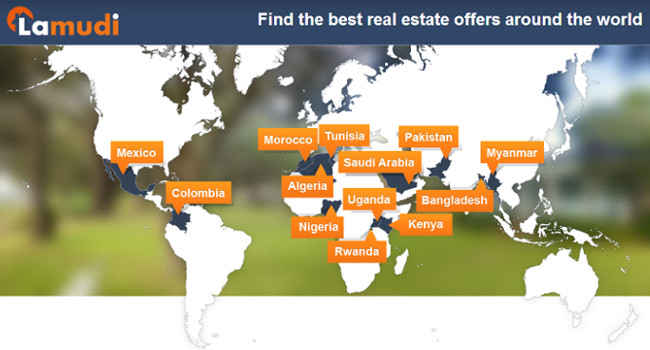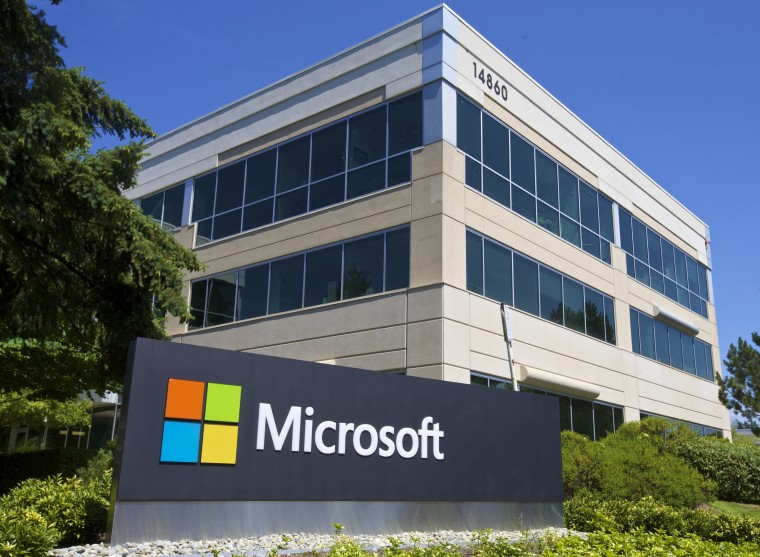
Lamudi, Rocket Internet’s property listings site for emerging markets, today announced it has added US$31.4 million (EUR 29 million) to its coffers after closing a new investment.
The company secured the investment from Asia Pacific Internet Group – a joint venture between Rocket Internet itself and Qatari telco Ooredoo, European VC firm Holtzbrinck Ventures, and Tengelmann Ventures, a division of retailer Tengelmann.
All three are existing backers of Lamudi, having injected US$18 million into the company a year ago. The company’s statement says it will use the money to strengthen its Asia and Latin operations, but doesn’t give any specifics.
Read more: Rocket Internet’s property portal Lamudi raises $31.4m from existing backers

LinkedIn Corp forecast first-quarter revenue and profit below Wall Street estimates as growth slows in its ads business and its hiring services face pressure outside North America, dragging its shares down 28% after the bell.
The operator of the world’s largest online network for professionals reported its slowest growth in quarterly online ad revenue in more than two years.
Online ad revenue growth slowed to 20% in the fourth quarter from 56% a year earlier as automated ads offered by Alphabet Inc’s Google make its traditional ad displays less attractive to advertisers.
LinkedIn has been spending heavily on expansion by buying companies, hiring sales personnel and growing its presence in China and other markets outside the US as it tries to strengthen its core recruitment services business.
The business, which connects recruiters and job seekers, is now facing pressure in Europe, the Middle East, Africa and Asia Pacific due to “current global economic conditions,” chief financial officer Steve Sordello said yesterday.
The company said it would phase out an online ad product, Lead Accelerator, in the first half of 2016, which would hurt its revenue by at least US$50 million (RM206.5 million) this year.
“While initial demand was solid, the product required more resources than anticipated to scale,” Sordello said.

It has only been alive since August, but Google's parent company - Alphabet - has replaced Apple as the most valuable company in the US. The news was revealed in its latest earning report. The company said that its net income for Q4 2015 was $4.9bn, that's up from $200m for the same period in the previous year.
The main drivers of Alphabet's growth were mobile searches, YouTube, and advertising. Mobile searches in particular will continue to increase the company's revenue as more people adopt smaller form factor devices, to accompany their traditional desktops, or outright replace them.
Read more: Alphabet overtakes Apple as US' most valuable company

Turning the cloud on its head, Microsoft is testing data center prototypes that aren't metaphorically above, but rather literally below us in the ocean. According to Microsoft employees interviewed by the New York Times, 'Project Natick' could eventually address the growing energy appetite for the globe's ever-expanding cloud computing needs.
The servers inside data centers generate lots of heat, and the air conditioning required to cool them consumes lots of energy, driving up costs. Microsoft has over 100 data centers around the world, spending over $15 billion to build and maintain them, according to the report.
Read more: 'Project Natick' puts Microsoft's data centers at the bottom of the ocean

Today Microsoft has published its financial results for the company’s Q2 of fiscal year 2016. These results cover the holiday season and the company's Windows 10 push. During Q2 Microsoft has earned $5.0 billion net income on 23.8 billion revenue ( GAAP values). Earnings per share were $0.62 with Microsoft also returning $6.5 billion to investors in the form of repurchases and dividends over this quarter.
Compared to previous quarters this represents a nearly 10% decrease in revenue with a 15% decrease in net income over the same period in FY 2015
When breaking down the figures between different Microsoft divisions and interesting and consistent image comes into focus. First up revenue in the "Productivity and Business Processes" declined 2%. This is the division that includes Office 365 and business-oriented tools like Dynamics CRM. Indeed the company does actually also focus on Office 365 specifically, highlighting the fact that it's revenue grew by 70% ( in constant currency) while also reaching 20.6 million subscribers.
Read more: Microsoft posts Q2 FY2016 earnings: $5.0 billion net income on $23.8 billion revenue
Subcategories
TIPS & TRICKS ICT WORLD
- Codeigniter4: Howto fetch data by ID (button click) from database using JQuery Ajax
- Howto stop vulnerable Open Memcached on a Zimbra Server.
- Proxy Server not running on Zimbra Mail Server.
- Howto remove .php, .html extensions on a web page using .htaccess file
- How to Increase the Max Upload Size Limit
- Howto Create a Distribution List or Mailing List in Zimbra mail server
- Howto configure redirection/forward of specific user emails to another email address in Cpanel
- Restore WhatsApp Backup in Android and iPhone
- Howto backup your WhatsApp messages to your Google Drive.
- RESOLVED in JOOMLA3.9: “Error: Application Instantiation Error: Call to undefined method JApplicationHelper::getHash()”
- Howto configure Microsoft Outlook 2016
- How to embed a tweet in to any website (WordPress, Joomla and Drupal)
